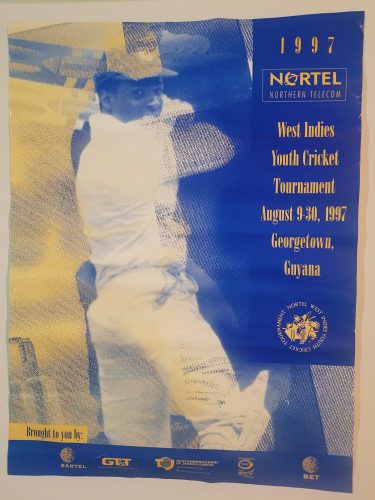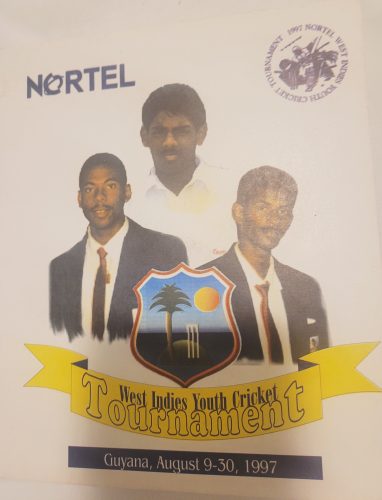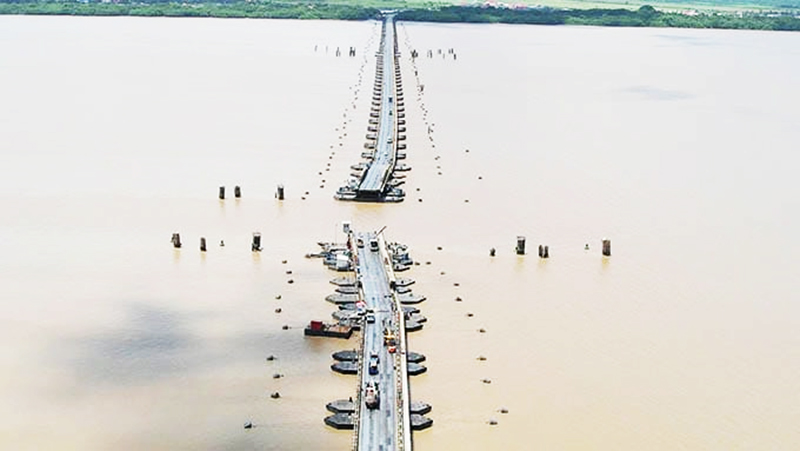Saturday, 16th August, 1997 – It’s about 11:00 pm, and a group of us are gathered around a table at our favourite watering hole at the time, ‘Jerries’, on the east side of Camp Street, between New Market and Middle streets. We are shooting the breeze, patiently waiting for a batch of bar-b-q chicken on the grill and nursing the ubiquitous Banks beer. The discussion has centred around the aesthetics and the history of the additions of the buildings on the block; Christ Church Secondary School, the old colonial-styled Colgrain House and the Georgetown Club on the opposite side of the avenue; Shanta’s Roti Shop on the north-east corner, the Library Disco, the Plaza Cinema, and the Dependants’ Pension Fund building. Trivia questions tossed in included: which burnt-out building had occupied the empty lot next door? What was the name of the men’s boutique before the Library replaced it? Did any cinema in Georgetown have Art Deco architecture influences? What was the name of the pharmacy that was once located at the south east corner of the block? Which species of tree used to be planted exclusively along the avenue on Camp Street, back in the good old days?

Another round of beer arrived, and the conversation migrated to the standard item on the ‘agenda’ for these weekend round-table councils, cricket, more specifically, West Indies cricket. Guyana was hosting the Nortel West Indies Youth Tournament, and the second round had been completed on Friday. Trinidad and Tobago had squeaked past the Leeward Islands by three wickets in a low-scoring game at the Enmore Ground, securing the lone outright win to date and moving to the top of the table with 24 points. The Leewards, who led Trinidad on first innings were second on 13 points, while Barbados, Jamaica, and Guyana were joint third on 12 points, with the Windward Islands in the cellar on 8 points.
“The third round begins tomorrow, are we going to support Guyana, or go and watch the Trinidad game?” moots Denis, a childhood friend of 25 years.

“Where are tomorrow’s matches? Enmore? Bourda? DCC?” enquires Andrew, my second cousin, who is visiting from Canada.
Flicking through the pages of the tournament programme, which I had retrieved from the car, I reply: “Ah, here is the schedule, Guyana versus Barbados at Everest, Trinidad versus Jamaica at Uitvlugt, and the Windwards and Leewards are at LBI.”
“If we had access to a helicopter, we could check out all three matches, and sneak a glimpse into the future of West Indies cricket in one day,” replies Imitiaz, with his trademark chuckle.
“Can anybody spell Uitvlugt?” asks Andrew, who grew up on the sugar estates.
Whilst the others are hopelessly twisting their tongues in the impromptu spelling bee and mangling the Dutch word, much to Andrew’s delight, a thought crosses my mind. I immediately stand and address them: “Anyone knows what time the bridge opens tomorrow?”
……………………………………………………………………………………………………………………..
Sunday, 17th August, 1997 – At 8:00 am, the sun is sharp; not a single cloud dots the blue sky. We stop for breakfast at Arapaima Restaurant, Main and Quamina streets. The crew is still half-asleep from last night’s hang which was aborted around 2:00 am. Once someone at Jerries had confirmed that the Demerara Harbour Bridge was opening from 9:00 am to 10:30 am, we began formulating plans for the scouting trip.
Denis and Andrew return with five black coffees and five bakes and saltfish. Two potential candidates for the expedition are no-shows. Mikey had forgotten he had a wedding to attend on the East Coast and Patrick failed to answer the bell when we passed for him a few minutes ago. Yours truly has been assigned the driving duties by default.
“It is strange when one thinks about the language we use in connection with the bridge schedule. When we ask when the bridge is open, we are enquiring from a vehicular perspective, but in fact, when it is open it is actually facilitating the flow of boats on the Demerara. Shouldn’t we be asking what time the bridge is closed? English language is confusing as it is, and then we add this cultural connotation,” Imitiaz observes as we proceed along the Avenue of the Republic. The fifth member of the tour group, ‘Uncle’ Compton, is standing patiently in front of City Hall. Despite his advancing age, he nimbly hops into the middle of the back seat, insisting on leaving the window seats for the ‘younger boys’. Meanwhile, Denis and I each pass a folded slip of paper to Andrew for safekeeping; our side wager has officially begun. Graciously accepting the ‘on-the-run breakfast’, he thanks us again for the invitation, adding that although his knowledge of cricket is very limited, he wouldn’t pass up on the outing. Knowing that he is an early riser, I had called him at 6:30 am, and he had suggested the pick-up point, since he fully appreciated our bridge timing concern.
“Oh shucks!,” Denis, who was riding in shotgun, exclaimed as we sped past Parliament Buildings, “It’s Sunday morning market at La Penitence, the sellers gon’ take over the whole road. You will have to cut through Albouystown and the back of La Penitence, or else we will get stuck in that bottleneck for sure.”
Thanks to our sharp navigator, we quickly complete the detour via Broad, Camp, Russell, and Hunter streets, crossing Punt Trench Dam, and avoiding any delays. Passing through the Industrial Site, we merge into the fast flowing East Bank traffic and begin jousting with the crazy minibus drivers.
As we sip the hot coffee and munch on the delicious bakes and saltfish, we reaffirm the rules of the scouting competition. Each of us must pick one player who we think will represent the West Indies in five Test matches within five years. Those cricketers, who have already played at the first-class level, in the expanded Red Stripe Cup earlier in the year, are ineligible for selection. The exempt list of eight was: Antiguan Sylvester Joseph and Nevisian Runako Morton from the Leeward Islands, Darren Ganga and Avidesh Samaroo from Trinidad and Tobago, Vincentian Kenroy Martin of the Windward Islands, Jamaica’s Marlon Samuels, and Guyanese Ramnaresh Sarwan and Azeemul Haniff. Samuels, younger brother of West Indies opening batsman Robert Samuels, is accomplishing the rare feat of playing in his first youth tournament after making his first-class debut. Surprisingly, there are no Barbadians on the short list.
It’s 8:35 am when we swing onto the road at Peter’s Hall leading to the Demerara River Harbour Bridge. We join a short queue of ten vehicles, including four trucks. Andrew leans out the window and buys a copy of the Sunday Stabroek from one of the omnipresent collection of hawkers of all manner of items, including bread, cigarettes, sweets, plantain chips, mittai, and fruit As we inch forward slowly, Uncle Compton asks, “Does anyone have an extra coat?”
“Coat? What for?” Andrew responds.
“In case it’s still cold. Remember after the bridge was completed the audit found that thousands of dollars had been spent on the purchase of ice during the construction phase. When it is first opened in July 1978, it was often referred to as the ‘Ice Bridge.’”
A few minutes later, we cross the bridge. The squeaking sound emanating from the tyres on the metal plates of the floating bridge coupled with the clear view of the Demerara River on both sides makes Uncle Compton, a non-swimmer, very nervous, and he bows his head. Imitiaz, who has been studiously perusing the Nortel Tournament souvenir programme, quickly notes his discomfort and begins reading out aloud.
“Listen fellas, here are some interesting points,” he says. “Under the heading of Qualification of Players, note ‘A’ states, ‘A player may, at any time, represent the territory of his birth,’ which sounds pretty obvious [accompanied by a chuckle]. Note ‘B’ says ‘A player must be under the age of 19 on the 1st of September of the year previous to the commencement of the first match in each series’. I guess that rules out all of us in this car, and is good for anyone who turned 19 on the second of September last year. Note ‘C’ reads,’ A player, who has been a bona fide resident of a territory for at least three months prior to the commencement of a match, may represent the territory in which he has been so resident.’ So, is it possible for one of these islands to stack their side one year by enticing the top players in Caribbean with full scholarships to one of their high schools, thus making them eligible to play for their territory? There is too much of a loophole in that rule, and it should be modified to at least a year. Finally, Note ‘D’ declares ‘ No player may represent more than one territory in a single series.’ Man, that takes all the fun out of it, they should allow players to ‘Jack-in-the box’ like we used to do when we played bumper ball as kids and we had an odd number of players, and the smallest kid used to get to bat for both sides.” Trust Imitiaz, who enjoyed a rebellious time during high school, to be still challenging the lines of authority.
It’s 8:50 am as we begin our descent from the bridge, well ahead of schedule, onto the road which runs through Joe Vieira Park. Uncle Compton lifts his head acknowledging, “It’s good to be back on terra firma.” Turning to Imitaz, seated on his right, he adds, “Young man, I will nominate you to the Guyana Cricket Board to be on the Rules Committee. You seem to know what you are talking about.”
“I will second the motion,” Denis concurs from the front seat.
At the T-junction on the West Demerara Road, we turn right, heading northbound towards Vreed-en-Hoop, site of the former ferry stelling, the original west side connection point for the two banks of the river. As Andrew, recalling his days on the ‘estate school bus’ reads aloud the village sign boards as we coast along the smooth road, we are reminded of our centuries old Dutch, French, and English heritages. The delightfully sounding names roll off his tongue, “Meer Zorgen, Schoonoord, Goed Fortuin, Versailles, Malgré Tout, Kashmir, Shamrock Manor, Phoenix Park, … Klein Pouderoyen, Vreed-en-Hoop…”
At Vreed en Hoop, just as we turn to head west, traffic is at a standstill. We learn that there is an accident. No one is injured, but the two parties involved are not budging, and no one can pass in either direction. The police station is close by, and their assistance has been sought to clear the gridlock. The clock is ticking, Uitvlugt is still about 11 miles away. Ten minutes crawl by before the traffic begins to move. It’s now 9:40 am.
Just past Ruimzigt, I decide to push it and as soon as I venture over the speed limit, the windmilling white sleeves of a traffic policeman appear.
“Oh, boy, here we go,” I mutter, pulling over, realising that there is no way we are going to be on time for the first ball at 10:00 am.
“Good morning Sir,” says the traffic policeman, as he leans on the side of the car. “You realise you were going over the speed limit on this road? Driver’s licence, registration and insurance papers, please.” He squats a bit to scrutinise the other occupants.
“Eh, eh, is you Smithy? Since when you join the police force?” Uncle Compton greets the policeman. “Long time no see, man. How your father doing? Last time I see him about five years ago, he tell me he was going to the States to see your big sister children.”
“The old man good, Uncle Brother Bee. He home with my mother deh in Hopetown. Ah gon tell them ah see you and you ask for them.”
“Smithy we in lil hurry. We heading to the cricket at Uitvlugt. Ah gon make sure he slow down,” Uncle Compton pleads.
“Young man slow down, take care of my country man. Until Uncle, good seeing you,” Smithy replies, and taps the roof of the car.
As I pull onto the road, Denis and I exchange knowing glances. Andrew, Imitaz and Denis are soon applauding loudly. Denis swivels in the seat, “You folks have just been introduced to Compton the Maestro, Man of the People. The day is young.”
“Fellas, I know Smithy since he was a ‘lil boy’ in short pants running ‘bout the place. We from the same village. Just a coincidence,” Compton notes modestly.
At 10:05 am, we arrive at the Uitvlugt Community Centre Ground, which is situated on the north side of the West Coast Public Road. Cars are parked on both sides of the road for quite some distance, and we have a half-mile walk. Upon entering the ground, we are greeted with two surprises. Firstly, the match has not commenced. Secondly, there is a large crowd of several hundred on hand, the pavilion is filled to capacity, and the rest of the spectators are sitting along the boundary basking in the sunshine.
The Jamaica and Trinidad and Tobago teams are on the field going through their warm-up paces. A spectator duly informs us that there was minor seepage under the covers overnight, but play should start very soon, since the sharp, “Atlantic breeze is expected to dry out the damp spot quick”. As he is relaying this information, umpires Peter Monfort and Dashroy Gobin are walking towards the middle of the ground to inspect the pitch. The exercise is quickly completed and they signal play can commence; a decision which is greeted with a warm round of applause. The two captains, Trinidad’s Darren Ganga and Jamaica’s Llewellyn Meggs, smartly attired in their blazers, stroll out to spin the toss. Meggs wins the coin flip and invites the tournament leaders to have first knock. The time lost is just half an hour.
Trinidad’s opening pair, the right-handed Ganga, and the left-handed Avelino Thomas, are loudly applauded all the way to the wicket. Dwight Mais and Wade Allen are the opening bowlers for the Jamaican attack. Mais, of whom much is expected, is very quick, but the seasoned openers are untroubled, and cautiously set about building a solid foundation for their teammates. Ganga, technically correct, is content to let Thomas assume the aggressive role, as the scoreboard ticks along slowly.
We have settled down along the western boundary, occupying a spot which commands a good vantage point of the very large ground which is in immaculate condition. The well-grassed outfield looks to be very fast, and the pitch appears to have an even bounce.
“Hurry up, Ganga, you ain’t got all week. This is three-day cricket, you gon’ play Test cricket later. Get on with it, we come fuh see runs, not forward defence strokes,” a spectator, agitated with the slow scoring rate, shouts. Orlando Baker and Marlon Samuels replace Mais and Allen after six overs each, but also fail to make inroads into the Trinidad side. At lunch time, the confident Trinidad pair are still there, 42 without loss.
We have to get going, but Compton is nowhere to be found. Denis soon spies his straw sombrero in the midst of the crowd. We discover Compton in deep conversation with a young couple. As we hurriedly extricate him, Compton explains that the husband used to work with him at Mackenzie, but he now works for GuySuCo at Leonora. Apparently, the man attended a wedding at Anna Catherina about ten years ago, and in Compton’s words, “Well, you know wedding does happen at wedding, and he left right hey.”
The lunch break is only 40 minutes. We are not sure where we parked the car.
(Continued next week)







